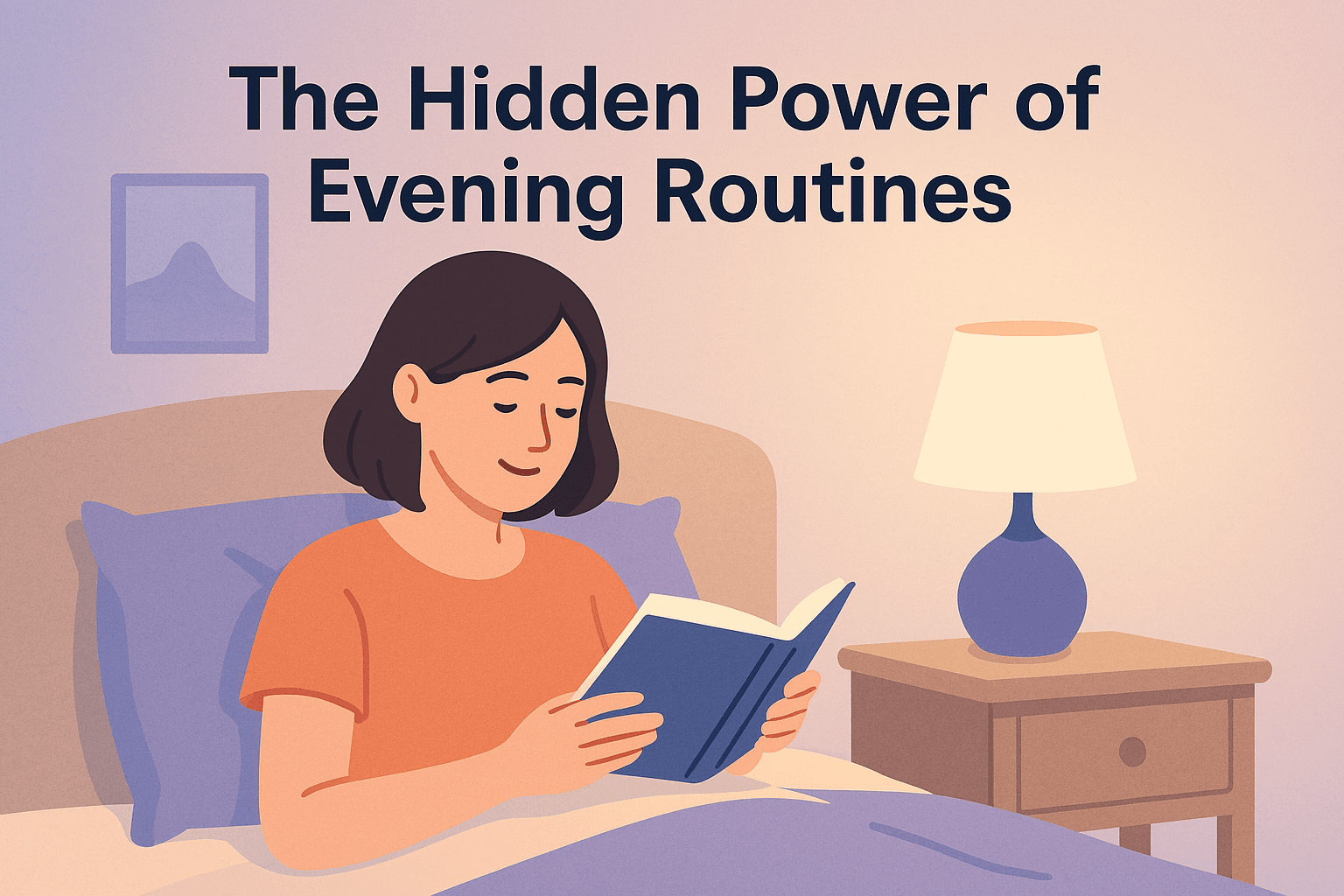
Your Tonight May be Sabotaging Your Tomorrow

TL;DR
Evening routines are a hidden key to next-day performance. By supporting brain recovery and reducing cognitive clutter, a consistent nighttime ritual can improve sleep quality, boost focus, and enhance willpower the next morning.
The Hidden Power of Evening Routines
Most productivity advice starts with the morning — but research suggests your next day actually begins the night before. Neuroscience confirms that a structured evening routine helps you wind down, primes your brain for quality sleep, and sets the stage for sharper focus tomorrow.
Your Brain Needs Time to Power Down
Unlike a light switch, your brain doesn't instantly turn off when you hit the pillow (Don't I wish!). Sleep experts emphasize the importance of signaling to your body that it's time to rest. Activities like dimming the lights, reading, or stretching help regulate melatonin and support circadian rhythms.
Cognitive Clutter Delays Sleep
A study conducted by Baylor University found that writing a to-do list before bed helped participants fall asleep faster. By externalizing your thoughts, you reduce rumination — a key barrier to restful sleep. The more you mentally declutter at night, the more mental bandwidth you'll have the next day.
Morning Energy Depends on Evening Behavior
Sleep quality influences willpower, focus, and mood regulation. Without restful sleep, you're more likely to experience decision fatigue and impulsivity. A good night routine supports emotional regulation and higher executive functioning — both critical for goal achievement.
What Makes a Good Evening Routine?
- Consistent Bedtime: Keeps your sleep-wake cycle steady.
- Screen-Free Wind-Down: Avoid blue light for 60 minutes before sleep. Exposure to blue light at night has been shown to suppress melatonin production, making it harder to fall asleep.
- Mindful Reflection: Journaling or gratitude practices reduce stress.
- Low-Stimulus Activities: Read a physical book, do light yoga, or listen to calming music.
- Environment Cues: Lower the lights and maintain a cool, quiet bedroom.
Small Shifts, Big Gains
The beauty of an evening routine is that it doesn't need to be long or elaborate — it just needs to be consistent. When practiced regularly, even 20-30 minutes of wind-down time can improve sleep onset, deepen rest, and prepare your mind for a more intentional tomorrow.
Resources for Further Reading
- Can Writing Your 'To-Do's' Help You to Doze? Baylor Study Suggests Jotting Down Tasks Can Speed the Trip to Dreamland - Baylor University
- Blue Light Has a Dark Side - Harvard Health
- The Effects of Bedtime Writing on Difficulty Falling Asleep: A Polysomnographic Study Comparing To-Do Lists and Completed Activity Lists - National Center for Biotechnology Information